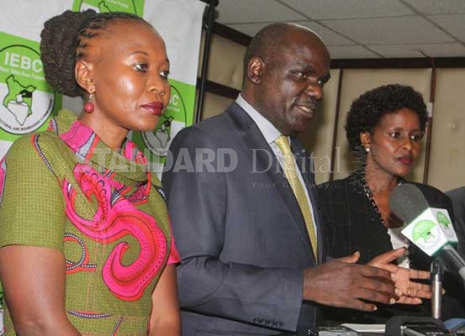×
The Standard e-Paper
Kenya’s Boldest Voice

Cornered and running out of time, the electoral commission bounced back the multi-billion shilling poll technology tender to the same French firm which supplied the 2013 Biomeric Voter registration kits.
Barely an hour after National Super Alliance (NASA) principals roundly condemned the Independent and Electoral Commission (IEBC) for shoddy preparations for the August 8 General Election, commission chair Wafula Chebukati revealed Safran Identity and Security (previously Morpho) had scooped the “direct” tender for the job.